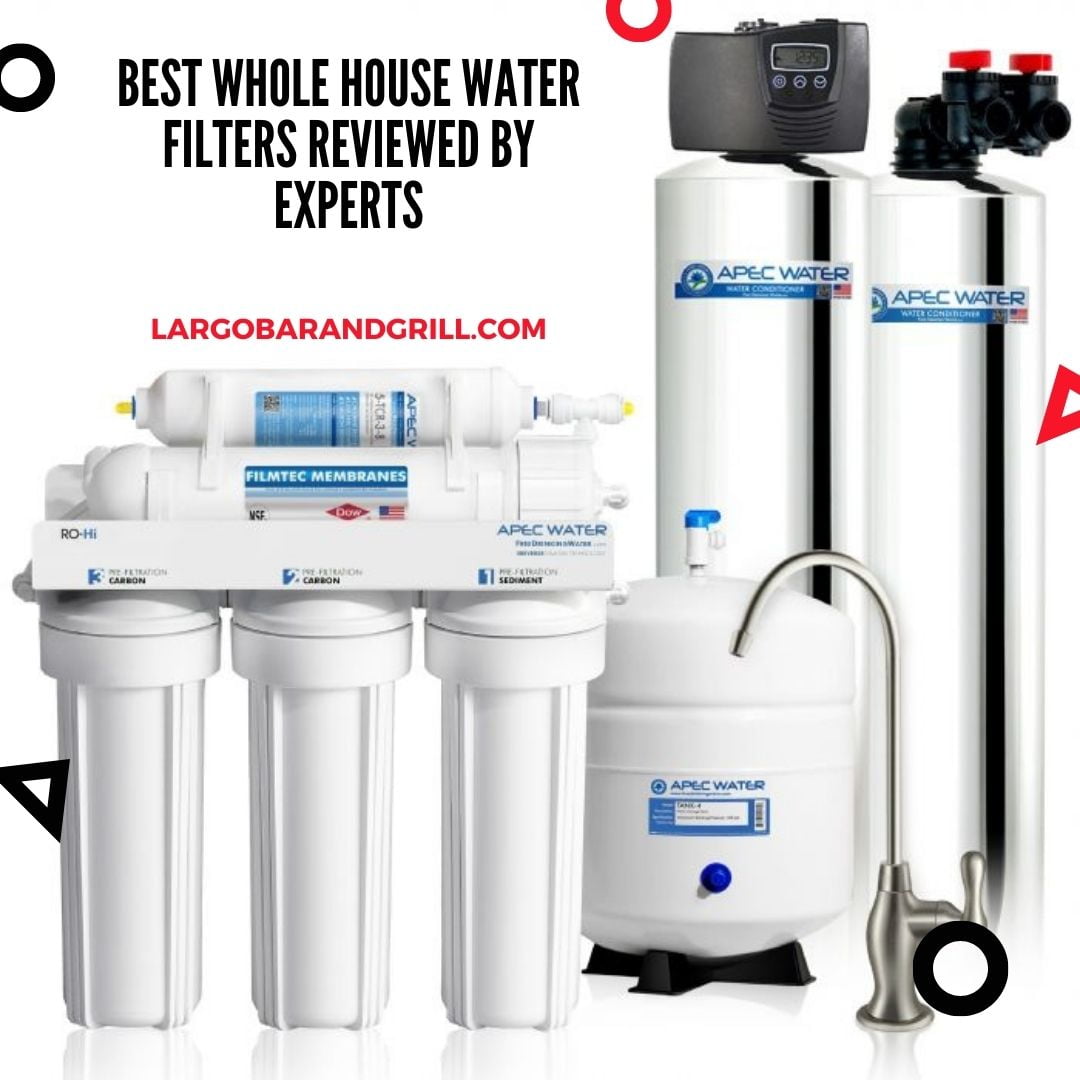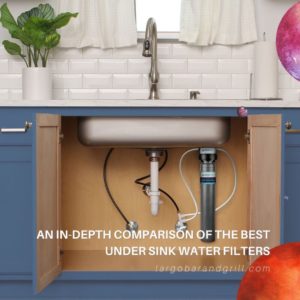Disclaimer: There are affiliate links in this post. At no cost to you, I get commissions for purchases made through links in this post.
If you’re like most people, you probably take your water for granted. You turn on the faucet and out comes clean, fresh water – no problem. But what if your water wasn’t so clean? What if it was filled with all sorts of nasty chemicals and contaminants that could make you sick?
That’s where whole house water filters come in. They can help remove all those pollutants from your water, making it safe to drink and use for everyday tasks. But which one is right for you?
That’s what we’ll be discussing in this blog post. We’ll be reviewing some of the best whole house water filters on the market, so that you can find the one that’s right for you. Stay tuned!
Best Whole House Water Filters
A whole house water filter can be a great way to protect your family from harmful contaminants in your water supply. But with so many different models on the market, it can be hard to know which one is the best for your needs.
In this article, we will review some of the top whole house water filters on the market and highlight their pros and cons. We hope this information will help you choose the right filter for your home.
Our Top Picks
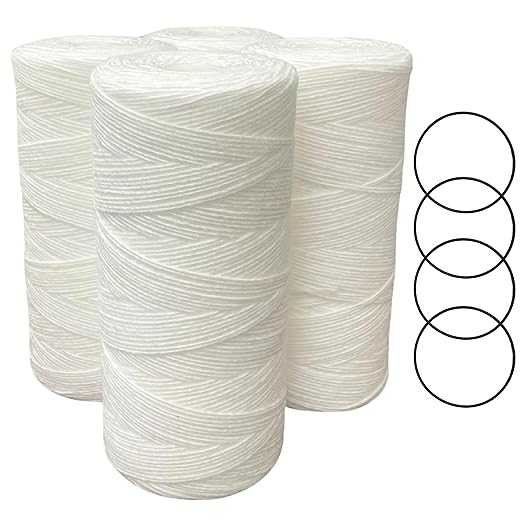
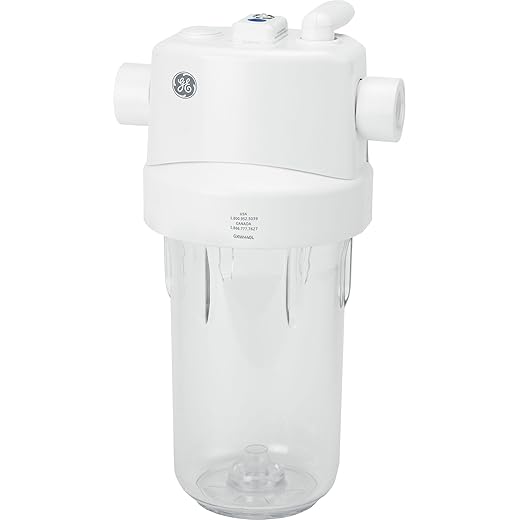
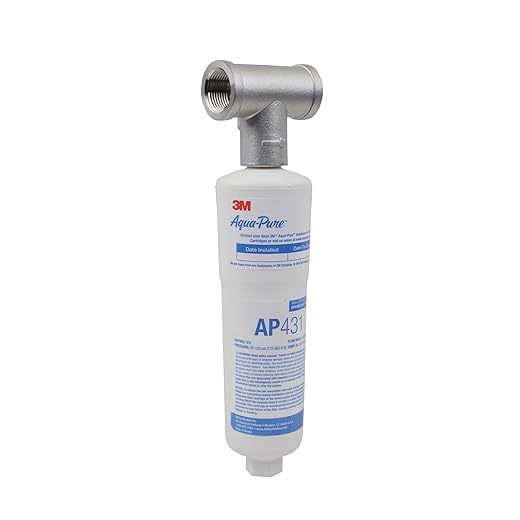

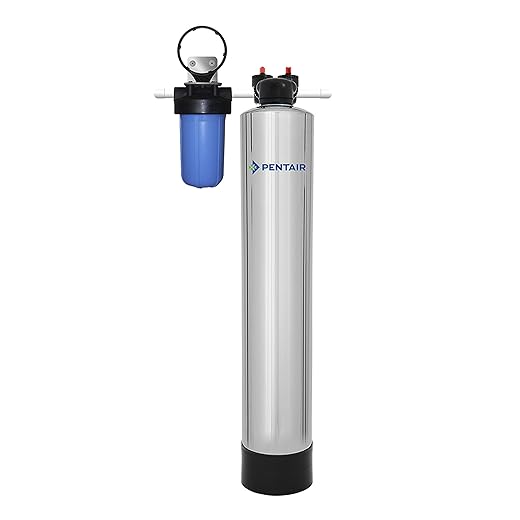
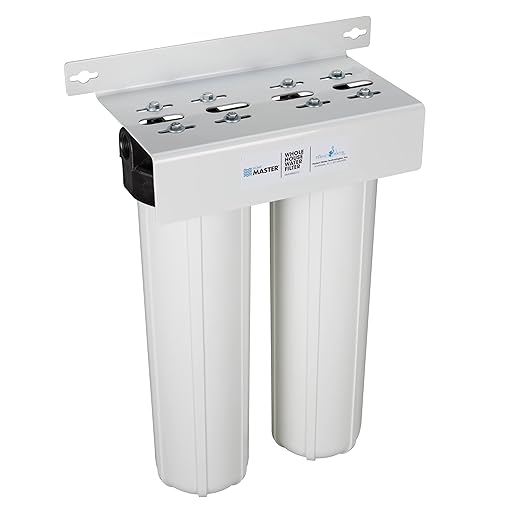
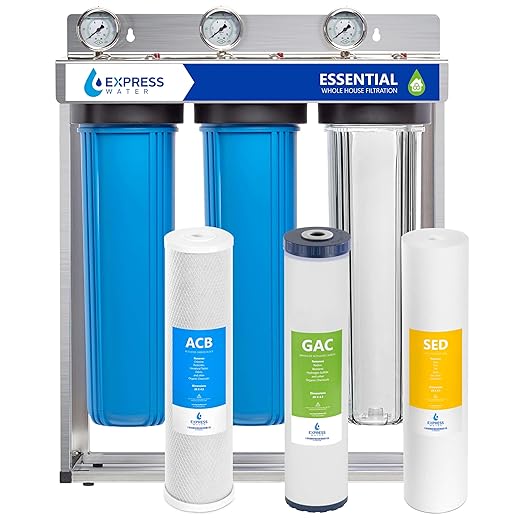
What Is Whole House Water Filter?
Whole house water filters are a type of water purification equipment that treats the entire home’s household water supply.
They are generally designed to remove contaminants that may be present in the public water supply or municipal water sources such as well and reservoir systems.
Common types of whole house filter treatment include sediment reduction, chlorine taste and odor reduction, and reduction of other common water quality problems. Whole house filters are installed near the main supply line to the home.
There are three types of whole house water filter designs:
The first is a tank-style design that requires little installation but must be replaced on a regular schedule based on water use and local municipality guidelines. This type of filter is typically located in the garage, basement or utility room.
A second type incorporates a filtration tank and drip pad design that attaches to the water main and filters water as it enters the home’s plumbing system.
The last type of whole house filter is built into a pressure tank and designed to provide treated water when needed for hot water usage, such as the dishwasher, the washer and kitchen sink faucets.
Whole house filters are available in a variety of treatment capabilities and capacity levels.
Treatment options to consider include sediment reduction (larger particles such as rust and silt); chlorine taste and odor reduction; iron removal; hydrogen sulfide smell/taste; water softener benefits; and cyst reduction.
Ask about the life of the filter, how often it must be changed, and where to discard or recycle used filters. Capacity levels should address household size (including guests), water quality concern(s) for your home, use level (daily production requirements) and replacement schedule (most manufacturers recommend changing out whole house filters every 4 to 8 months).
How Does Whole House Water Filter Work?
Whole house water filter systems remove chlorine by means of granular activated carbon (GAC) or synthetic media.
GAC is made up of porous charcoal that has been treated with oxygen to open millions of tiny pores between the carbon atoms.
The surface area of these pores trap impurities like a magnet, reducing contaminants and improving taste, clarity, and odor.
It works like a sponge that absorbs chemicals and pollutants from the water passing through it.
The size of the pores in activated carbon ranges from 0.001 to 0.010 microns, which makes it effective at removing microscopic impurities, including bacteria.
Benefits of using Whole House Water Filter
Water is essential for life, but not all sources of water are clean enough to drink. Spring Water and Mineral Water are available in most areas, but this is not always the case.
The quality of water that comes out of your tap varies depending on where you live, so it is best to know how good or bad it is before drinking it.
Here are some of the benefits of using a Whole House Water Filter to improve the quality of your home water supply.
Improved Taste
Whole house water filters remove bad tastes and odors from the water, allowing you to enjoy clean tasting water right out of your faucet. The filter will have a spec included that will tell you what types and amounts of contaminants it is designed to remove.
Reduced Costs
Whole house water filters allow you to use less bottled water, which means fewer trips to the store and less money spent on buying cases of imported spring or mineral water.
Healthier Drinking Water
Filtering your water supply before drinking it will remove many harmful contaminants and chemicals such as nitrates, fluoride, arsenic and chlorine.
These chemicals are common in areas with hard tap water and can put you at risk of developing cancer or other health conditions. The result is cleaner, better tasting drinking water that is also much safer for your health.
Cleaner Water for Home Use
Whole house water filters will not only improve the taste, odor and safety of your drinking water, but they will also provide better tasting food and give you a more pleasant experience when washing dishes.
Other home appliances such as dishwashers and washing machines can also benefit from filtered water so it pays for itself in many ways.
Reduced Maintenance Costs
Keeping your water filter clean is easy and takes only a minute or two. If it needs to be replaced you can usually find the exact replacement at any home improvement store for little cost, significantly reducing costs on maintenance fees.
Check with your local water company to make sure that you are buying the correct type of water filter and replacement for your area.
Environmentally Friendly
Every time you use a whole house water filter, it will help to save hundreds of plastic bottles from ending up in landfills or in vulnerable ecosystems where they can cause harm to animals and plants.
It also reduces the amount of energy used to extract, process and transport the water from the bottle to your home so this is a great way to reduce your carbon footprint.
In conclusion, using a whole house water filtration system provides clean drinking water for free from your tap. It is healthier for you, reduces costs both in buying bottled water and in replacement parts and is environmentally friendly. It has the added benefit of providing cleaner, better tasting water for home use in your sink and in appliances such as dishwashers and washing machines.
Factors To Consider When Choosing The Best Whole House Water Filter
Water is a very important, yet scarce resource that is essential to human survival. In addition to being used for drinking and cooking, it can be used for bathing and washing purposes as well.
Although water covers about 70% of the earth’s surface, only 3% of this water is freshwater which humans can use. Therefore, there is a need to not only conserve water, but also to make the most of this small percentage of freshwater for human use. This is where a whole house filter comes in.
It filters all the water that flows through it and many homeowners choose to install them because they do believe it makes a difference; but how does one choose among the ten types available on average?
The choice of a water filter for a whole house depends on the following factors:
- Consistency and quality of water supply – If the water one gets from the tap is not a good quality source, then a whole house filter can be used to improve this quality. However, if one already has high-quality water from their faucets, then a whole-house filter may not be necessary.
- The amount of filtration needed – If one does not need to improve the quality of their water supply to meet certain requirements for it, then they may opt to use something less comprehensive in terms of filtration. This is because whole house filters can be quite expensive.
- Number of people in the household – If there are many people living in the house, then one may need more than one filter system to ensure that everyone’s water needs are met. On the other hand, if there is only one person living at home, or just a few members of the family, then just one whole-house filter is fine.
- Yearly cost of filter replacement – If one needs to change the filters on their water filtration system more than once a year, then this can be quite expensive. Therefore, it would be better if they got one that needed no filter replacements for several years.
- Size and location of the house – The size and location of the house needs to be considered when choosing a whole house filter for it. This is because some types of filters require more space to install in, while others cannot be installed outdoors.
- Personal preference – In the end, personal preference will play a role in determining what kind of water filtration system one chooses for their home. If someone likes the idea of using a particular type of water filter, then they will most likely go for it.
It is important to remember that one can ask an expert for advice on which whole house water filter to use in their home. A good source for this would be a certified plumber who has experience with the various types of filters available.
In addition, one can also do research online with their phone or computer to learn more about this topic.
FAQs About Whole House Water Filter
A whole house water filter removes contaminants from the incoming feed water to your home. It typically has two filtering stages, one for sediment removal and another for the reduction of chemicals such as chlorine and chloramines. You turn on your cold water tap, and it flows through the whole house filter before entering your home’s plumbing system.
Many pipes in older homes are coated with interior rust. This rust contains iron, calcium, lime and other metals that can be harmful or even fatal to humans if ingested in significant amounts. A WHOLE HOUSE WATER FILTER WILL CLEAN YOUR WATER.
A typical inline filter connected to your kitchen faucet or refrigerator ice maker will only filter the water entering that one fixture. Plumbing, depending on age and condition, may contain lead solder (much less common today), lead pipes with soldered joints, galvanized iron with zinc coating that can fail after 10 to 20 years leaving the iron exposed to corrosive action of the water, copper pipes with lead “solder” joints used from the 1930s to 1960s, and plastic pipes.
In general, if your water does not taste good from the tap or has an odor, a whole house filter may solve these problems. In areas where older plumbing is in use a whole house water filter will significantly improve the quality of your drinking water.
Bottled water is regulated differently than tap water, and the quality standard may be higher (depending on which country it was manufactured in), but bottled water does not necessarily contain any more nutritional content than tap water.
Bottled water is packaged in plastic containers that may be harmful to the environment. Plastic leaches into water over time, producing estrogen-mimicking compounds that act like female hormones in body tissues.
Bottled water is expensive and creates an incentive to use drinking water for purposes other than human consumption (e.g., watering lawns or washing cars).
All metal cans will clean your water. The goal is to find a filter that does not require frequent replacement, to keep costs down over time.
Look for a filter with a large surface area where contaminates can be removed by scrubbing or rescue for future use. Try to find a filter that does not require periodic replacement of cartridges, barriers, or Celtics, as these are the major cost items in the equation.
The average cost of a good metal can whole house water filter is $500 to $600 US. The initial purchase price may seem high, but it is critical that you invest in a comprehensive system with large-surface-area filters, so they do not have to be replaced as often over time. The filter should remove particles down to 20 microns in size, be rated to 2-micron absolute so the microbes are removed and have a service life of five years or more.
A whole house water filter will last five years under normal conditions. Deducting the cost of replacement cartridges, there is a one-time purchase cost of about $300 to $400 per year. If your water tastes bad, an online style filter will be more suitable for you.
Boiling water for 10 minutes will kill bacteria and viruses but will not remove particulate matter from your drinking water.
Distilled water is a form of purified water that has had most containments removed. The process of distillation requires a lot of energy and is not an economical alternative to being purchased in bottled form.
Tap water contains chemicals, inorganic particles and bacteria that may be harmful to human health. If you are concerned about the quality of your drinking water, a whole house water filter system can be an effective alternative to buying bottled water.
Low-quality filters can leave undesirable contaminants in your water. The linear footage of filtering surface is important, as is the absolute rating of microbe retention.
If you are concerned about the quality of your drinking water, a whole house water filter system can be an effective alternative to buying bottled water.
Yes! Water can have many contaminants, some of which are particularly harmful to pregnant women and young children. Household water filters remove particles but not harmful chemicals or bacteria. A whole house filter removes all the nasties bad for your family.
No. Most water suppliers do not add pesticides like endrin or insecticides like diazinon – chemicals of concern for us. Fluoride is a naturally occurring mineral and removing this from your water will cause more harm than good, particularly in kids.
Yes! Water filters do not last forever. When you install an under counter whole house filter, it has a certification that it removes a certain percentage of particles. Over time, as water filters through the media, those numbers decline, and you need to replace the cartridge before your flow is reduced too much. We recommend replacing every 4-5 years for best performance.
We treat all types of potable water, including well water, municipal supply (city water), and creeks.
If you have a slow drip from your filter housing, it can be difficult to detect – just follow these steps: Make sure the “O” ring on your filter cartridge is not damaged or misplaced. If it looks good, then we recommend that you give us a call and we can replace it at no cost to you. If you have a high-volume leak, the system will lose prime and will not function properly until you refill the holding tank with water. Make sure your fittings are tight before re-filling the tank.
Conclusion
We hope that this review has helped you to find the best whole-house water filter for your needs.
If you are still unsure about which product is right, look at our Buyer’s Guide section below where we have links to each of the products reviewed so you can do more research before making your decision.
If none of these reviews are quite what you need or if they do not cover all aspects of filters, please feel free to contact us with any questions and one of our friendly customer service representatives will be happy to help!
Recent Posts
Related Posts
Best Backpacking Water Filters For Hikers And Campers
Disclaimer: There are affiliate links in this post. At no...
Read MoreAn In-Depth Comparison Of The Best Under Sink Water Filters
Disclaimer: There are affiliate links in this post. At no...
Read MoreBest Water Filters You Can Get For Your Home
Disclaimer: There are affiliate links in this post. At no...
Read MoreWhy Trust Us
You will find what you are looking for at Largo Bar and Grill. From classic to luxury brands, you'll find both. We will help you to select appliances that fit your needs, budget and lifestyle. Whether you want to stop by to learn more — or plan to make a major purchase — we’ll treat you like family and assist you every step of the way. Shop with us today to receive friendly and experienced help along the way.

